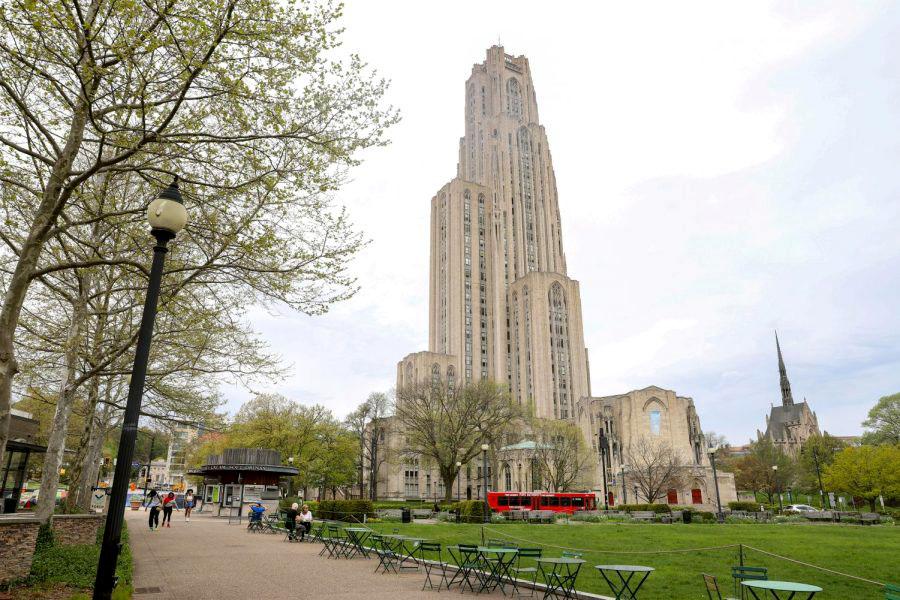Pitt faculty union elects bargaining committee, begins negotiating with administration
Kaycee Orwig | Senior Staff Photographer
The Cathedral of Learning seen from Schenley Plaza.
March 2, 2022
Four months after Pitt faculty voted overwhelmingly in favor of unionization, the union’s newly formed bargaining committee sat down alongside United Steelworkers representatives last Friday to negotiate with the administration for the first time.
Negotiations will continue until Pitt officials and committee members agree on a first-ever contract, before turning it over to University faculty for the final vote.
Pitt’s new faculty union began electing committees to bargain with top officials immediately after the October election. On Feb. 3, faculty formally elected the union’s 62-person Council of Representatives, which includes faculty from all schools and campuses. A week later, those representatives selected a 15-member bargaining committee — a subset of the Council — to negotiate directly with the administration.
Committee members declined to answer questions about the details of negotiations, and said it remains “very early in the process.”
“We are excited to bargain a fair contract that reflects the hard work and dedication Pitt faculty demonstrate every day,” Melinda Ciccocioppo, a psychology lecturer, said. “Our entire campus community stands to benefit from this process, as we seek to build an environment in which faculty, staff and students can all successfully work and learn.”
Union representatives didn’t say how long they expect negotiations to last, but a Bloomberg Law analysis shows an average of 466 days for new unions and employers in the education sector to reach a collective bargaining agreement after a union election, meaning Pitt’s faculty union could reach a contract by February 2023.
Any member of the bargaining unit who submits a union card may vote to ratify the initial contract, though future membership and voting eligibility will require dues. According to the Pitt faculty union website, Steelworker dues are 1.45% of each member’s gross monthly earnings plus $0.02 per hour worked. Part-time faculty paid by the credit hour or contact hour pay 1.5%, with no per-hour component. Regardless of membership status, union-negotiated contracts will apply to all members of the bargaining unit.
The University will reach an agreement with new legal representation behind it.
According to University spokesperson David Seldin, Pitt hired law firm Ogletree Deakins as counsel during negotiations. The firm is one of the largest that helps employers “minimize the risk of unionization,” and successfully helped IKEA resist a 2016 unionization effort in Massachusetts.
Seldin said Pitt continues to work with firm Ballard Spahr “on a number of matters,” leaving it unclear whether that includes ongoing unionization efforts by Pitt staff and graduate students. Since the latest unionization efforts at Pitt began in earnest six years ago, the University’s tab with Ballard Spahr has approached $3 million, including $721,152 during the most recent fiscal year.
Throughout the faculty union drive, several professors slammed the payments as a waste of money and accused the University of using obstruction tactics to derail unionization efforts.
Seldin said the University will remain focused on meeting faculty members’ needs throughout the collective bargaining process.
“We look forward to working productively with the faculty union as negotiations get underway,” Seldin said. “The University’s priority is to continue partnering with faculty to advance their pursuits of excellence in teaching, scholarship and research.”








